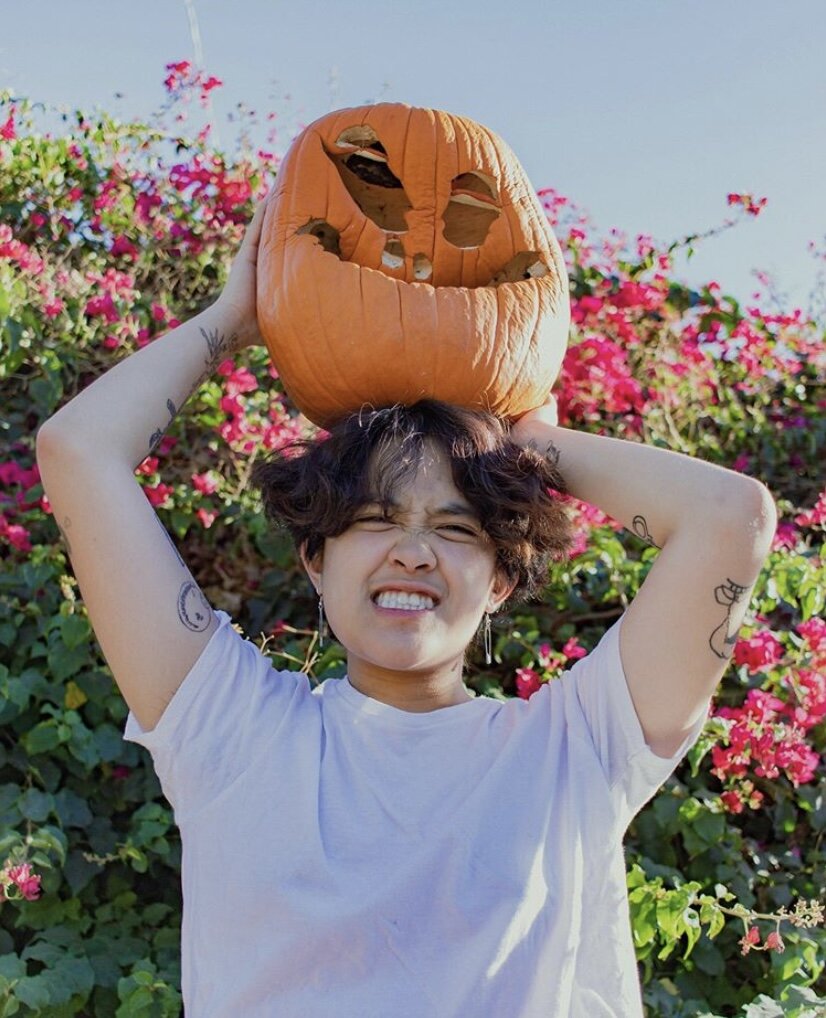Live Show Podcast: Nat Lee
Nat Lee is a recent Alumna of Thornton’s music industry program, where she founded and built DIY production and music collective, SleezeHog. Entering its second year of operation, SleezeHog has thrown over 20 shows that feature exclusively female, POC, and queer artists. In our interview, Nat and I discuss curating safe spaces for all attendees, DIY ethics, and stick and poke tattoos. Please enjoy this second edition of Live Show: Podcasts!
TW & CW: topics regarding sexual assault and harassment discussed
Q: Do you think it’s hard to consistently find bands of women, minorities, POC?
A: It’s not hard when I go to shows so often. I feel like when I go to shows a lot I’m constantly discovering, and when I discover a new band I go to their page on instagram and find even more bands. I would say that it’s hard to find bands that are more popular within the LA scene. There are certain niches and demographics of bands that are really popular and they get a lot of draw. But a lot of the marginalized artists I find are usually smaller or are in their own niche. But the draw of a band isn't exactly what’s important to me, I think supporting smaller artists is what I want to do the most.
Q: What responsibilities do you feel as someone who works on Sleezehog and other projects to support your community and the LA community?
A: Definitely, I really resonated with what you said earlier about changing things from the bottom up. I don’t believe that I myself hold a tangible amount of responsibility. I just feel like some things that I do may or may not influence people to do things the way I do. Sometimes that is reaffirmed for me when people tell me directly, like I’ve had some bands come up to me and be like “Hey I really like how SleezeHog works, it’s inspired me to book an all-female lineup at the Smell.” And yeah, that should be the norm, that should just be a thing that happens all the time and people go to it because it’s cool. As for organizing our own shows, I feel a lot of responsibility, I take everything very personally. The experiences of people at the show and the artists mean a lot to me, whether or not they feel safe, comfortable, and having a good time.
Q: What do you like so much about DIY culture and doing everything yourself?
A: I think it’s the accessibility, and the other biggest thing is amount of queer people in the DIY community, or at least the circles of people that I’ve been able to meet--whether that’s through the local music scene or tattooing. Like, finding a lot of queer tattooers who inspire me. Another aspect I would say is that there is such a supportive community that operates with the same mindset: “Just go for it, try that thing that you want to try.” And then being able to fall back on people, or ask questions, or ask for advice from the community around you on how to do whatever that thing is. The DIY community is so creative, everyone is some sort of multidisciplinary artist. I think it’s really cool there’s this community of young people who are so creatively ambitious, to pursue whatever creative interest that they have. And then to have a community that backs that.

